Texas Motorcycle Helmet Laws
Oct 21, 2021 | Austin Injury Lawyer
Read about how universal helmet laws can move in legislative cycles across the United States. Helmets have proven to be life saving measures for riders who wear them. But do helmet laws in Texas have the power to save lives? Find out.
Should lawmakers let the ones who ride decide?
In a debate over whether or not to require motorcycle helmets, doctors and safety advocates often clash with the riders themselves. Biker advocacy groups have contended that states and municipalities should “let the ones who ride decide” whether or not to wear a helmet.
Supporters of helmet laws cite the preventable deaths that occur each year when riders opt not to wear protective gear on the road. In Texas as many as 240 people died in 2015 because they didn’t wear a helmet. (Data by Texas Department of Transportation.)
Number of people who die each year in motorcycle deaths:
- United States: 4,693 (Data by IIHS, 2015)
- Texas: 459 (Data by TXDoT, 2015)
- Austin: 15 (Austin data compiled by McMinn Law Firm, 2015)
Motorcyclists are more vulnerable to injury when out on the road. Compared to commercial vehicles, truck drivers, or cars, there’s little to no protection for a motorcyclist.
But should people be allowed to engage in risky behavior? Many riders believe that it should be their choice. When New York City Mayor Michael Bloomberg signed the Sugary Drinks Portion Cap Rule in an effort to curb obesity rates, opposition cried out saying that the city of New York had overstepped its authority. There’s no outright ban on cigarette smoking, unhealthy food or restrictions on volumes of alcohol a person can consume. So is it fair to single out motorcyclists with regulations? Read on to see why helmet requirements are a subject of debate in state legislative hearings.
Could a Universal Helmet Law Save Lives?
Information from the CDC attempts to weigh the pros and cons of a motorcycle helmet law in terms of safety and cost. They found that Helmet use is “estimated to prevent 37% of fatalities among motorcycle operators and 41% of fatalities among passengers.
With motorcycle ownership at an all time high, it’s important to evaluate the pros and cons associated with state helmet laws.
During the period evaluated (2008 – 2010) almost 15,000 motorcyclists were killed within 30 days of the crash.
Should lawmakers let the ones who ride decide?
In a debate over whether or not to require motorcycle helmets, doctors and safety advocates often clash with the riders themselves. Biker advocacy groups have contended that states and municipalities should “let the ones who ride decide” whether or not to wear a helmet.
Supporters of helmet laws cite the preventable deaths that occur each year when riders opt not to wear protective gear on the road. In Texas as many as 240 people died in 2015 because they didn’t wear a helmet. (Data by Texas Department of Transportation.)
Number of people who die each year in motorcycle deaths:
- United States: 4,693 (Data by IIHS, 2015)
- Texas: 459 (Data by TXDoT, 2015)
- Austin: 15 (Austin data compiled by McMinn Law Firm, 2015)
Motorcyclists are more vulnerable to injury when out on the road. Compared to commercial vehicles, truck drivers, or cars, there’s little to no protection for a motorcyclist.
But should people be allowed to engage in risky behavior? Many riders believe that it should be their choice. When New York City Mayor Michael Bloomberg signed the Sugary Drinks Portion Cap Rule in an effort to curb obesity rates, opposition cried out saying that the city of New York had overstepped its authority. There’s no outright ban on cigarette smoking, unhealthy food or restrictions on volumes of alcohol a person can consume. So is it fair to single out motorcyclists with regulations? Read on to see why helmet requirements are a subject of debate in state legislative hearings.
Could a Universal Helmet Law Save Lives?
Information from the CDC attempts to weigh the pros and cons of a motorcycle helmet law in terms of safety and cost. They found that Helmet use is “estimated to prevent 37% of fatalities among motorcycle operators and 41% of fatalities among passengers.
With motorcycle ownership at an all time high, it’s important to evaluate the pros and cons associated with state helmet laws.
During the period evaluated (2008 – 2010) almost 15,000 motorcyclists were killed within 30 days of the crash.
Total number of motorcycle traffic fatalities
- 14,283 total deaths from motorcycle crashes
- 6,057 (42%) were not wearing a helmet at the time of the crash
States with Universal Motorcycle Helmet Laws
20 states had a universal helmet law during this period
- 739 (12%) were NOT wearing a helmet when fatally injured
States with Partial Motorcycle Helmet Laws
27 states had a partial helmet law during this period
- 4,814 (64%) of fatally injured motorcyclists were not wearing a helmet
States with No Motorcycle Helmet Law
3 states had no helmet law during this period
- 504 (79%) of motorcyclists in the three states with no helmet law were not wearing a helmet at the time of the crash
This is considered by the CDC as significant evidence that universal helmet laws are more effective than partial helmet laws. Helmet laws can protect against injuries and translate to economic costs saved.
After all, riding without a helmet only endangers the rider, right? This may be true, but estimates from National Highway Traffic Safety Administration (NHTSA) $3 billion in costs were saved as a result of helmet use in the U.S. Another 1.4 billion could have been saved if all motorcyclists were wearing helmets.
As brain injury lawyers in Austin, TX we are all too familiar with the consequences of reckless driving. Even common traumatic brain injury symptoms can be devastating for the families affected.
Helmet Laws in U.S. Marked by Cycles of Change
Many motorcyclists in Texas are not required to wear a helmet. Critics of motorcycle helmet rights say that the costs saved by wearing helmets are never actually passed down to consumers.
According to economic data by the National Highway Traffic Safety Administration (NHTSA), areas with a universal helmet law saved an average of $725 in economic costs for every registered motorcycle in the state. That’s nearly four times the savings of those in states with no such law ($198).
Despite data from CDC showing that universal helmet laws can prevent injury and death, in 1997 Texas lawmakers reversed a universal helmet law in the state of Texas. Arguments from anti-helmet laws have been effective in enacting helmet law repeals.
Helmets have been said to create some visibility issues for motorcyclists on the road. Anti-helmet advocates claim that helmet laws reduce the number of riders out on the road (such as in California).
A Michigan lawmaker who sponsored a bill repealing the great lakes state’s mandatory helmet law later died in a motorcycle crash. A pickup truck made a fatal left turn into Peter Pettalia’s lane. Despite his advocacy for repealing universal helmet law he was wearing a helmet at the time of the crash.
It is true that no helmet, even when properly fitted cannot stop a motorcycle crash. Above all both advocacy groups agree: Don’t drink, drug and ride.
Helmet Laws by State
Some states require helmets for all riders. Others states require helmet use for riders under 21 years of age, or health insurance. Some states have no helmet laws at all.
See what your state requires when out on the highway.
Texas Motorcycle Helmet Laws
Is there an offense in Texas for not wearing protective headgear? Maybe. If you are under the age of At any age you must have health insurance to avoid a ticket. Officers are not permitted to pull a motorcyclist over to check for insurance.
Texas has an insurance and age requirement before motorcyclists can legally consider not wearing a helmet.
If a Texan wants to head out onto the highway helmet free they were required to meet these requirements:
- Must be 21 years of age or older.
- Must be covered by an applicable health insurance plan.
- Must have completed a motorcycle operator training and safety course.
Formerly a Texas motorcyclist was required to be covered with a minimum of $10,000 in health insurance if they would like to be exempt from an offense of operating or riding a motorcycle without a helmet. These rules were overruled on September 1, 2009 and repealed the helmet exemption sticker program.
Kids on Motorcycles: You might think twice before going for a stroll with the little one. Children below the age of 5 are prohibited from riding on a motorcycle. There is one exception – kids under 5 may ride in a sidecar attached to the motorcycle.
Under Malorie’s Law in Texas, motorcycles carrying more than one passenger are required to have handholds, bars, or something else for the passenger seated on the back to hold onto.
California Motorcycle Helmet Laws
Motorcyclists in California are subject to a universal motorcycle helmet law. All motorcycle drivers and passengers are required to wear a helmet while on a motorcycle.
It is even illegal for a helmeted passenger to ride with a rider who is not wearing a helmet. The helmet must meet minimum safety standards as set by the Federal Motor Vehicle Safety Standard 218.
The helmet must:
- Thick inner liner: A helmet liner is typically at least an inch thick and constructed of polystyrene foam
- Riveted chin straps: Solid rivets should connect chin straps to the shell of the helmet
- Weight: Helmets meeting the standards typically weigh at least three pounds
- Helmet Design: nothing is allowed to protrude from the surface of the helmet by more than two-tenths of an inch
Popular content like this:
Fast Free Case Evaluation
Recent Personal Injury Case Results
The McMinn Law Firm has helped injured Austinites for fifteen years, winning over 100 million dollars in settlements to date.
Uninsured Motorist Accident
$350,000
Drunk Driver Accident
$1,300,000
Truck Accident Victim
$1,200,000
Austin Personal Injury Lawyers Waiting To Help You
We specialise representing clients in the following areas, we are waiting to help you on your personal injury case.

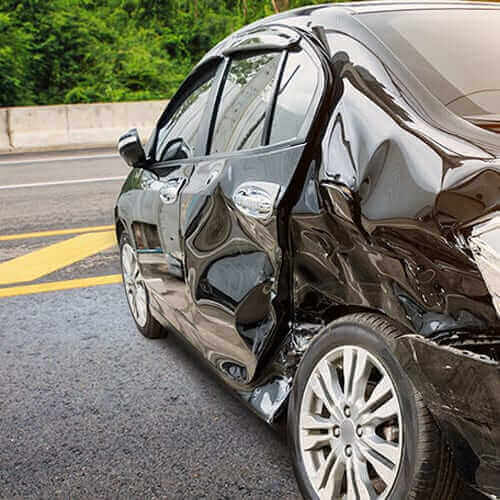

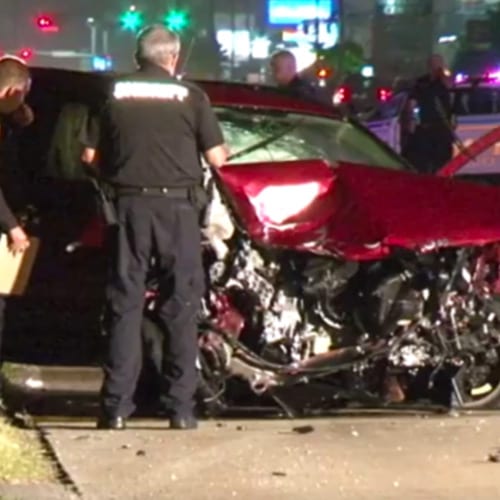
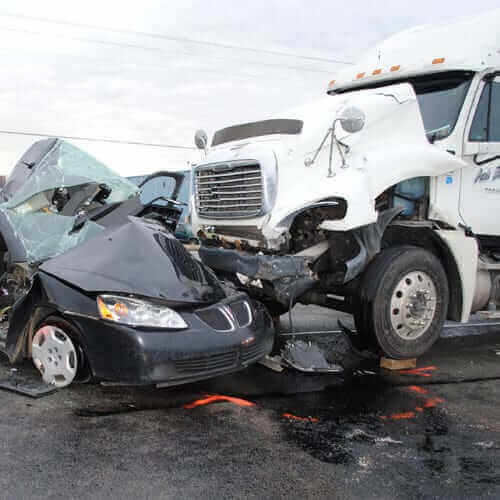
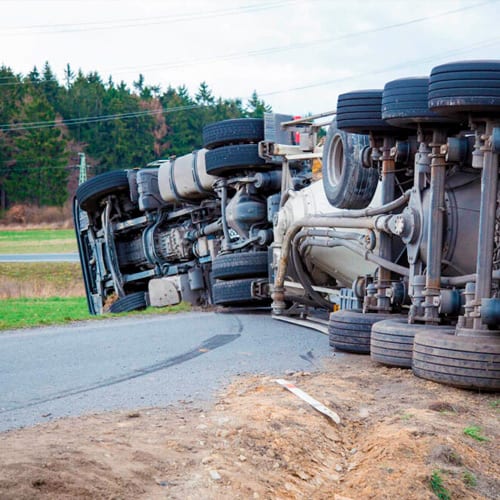

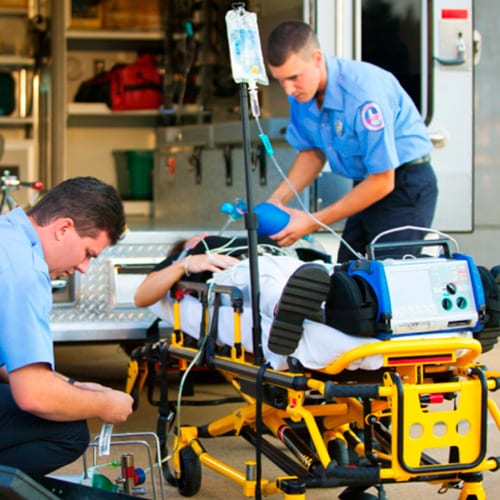
Our Awards



What Past Clients Are Saying
In Need Of Compensation?
Let us – at no cost to you – evaluate your situation so you can be sure. We don’t get paid unless you do. Call or reach out today to speak to an attorney with no obligations.
